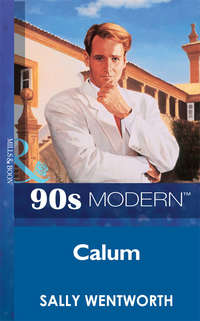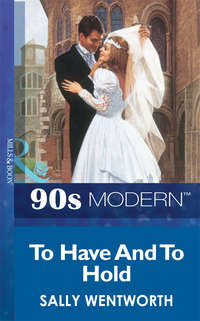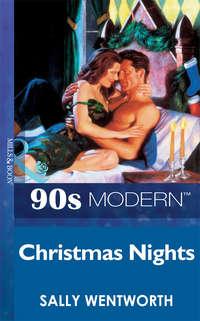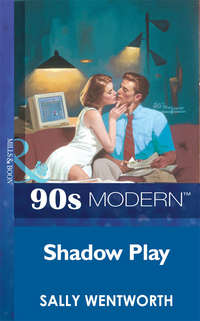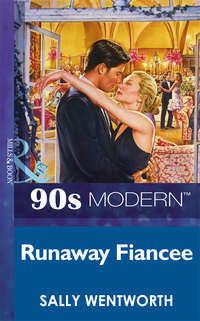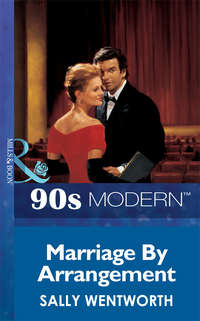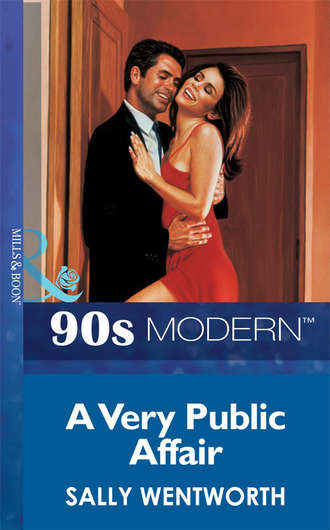
Полная версия
A Very Public Affair
With a great inner sigh of relief Clare settled back in the seat, but stayed sitting up, just pulling the rug around her again. Looking out of the windows, she could see no houses anywhere, just expanses of open fields and sometimes a few trees, their branches already white with snow. The man, she could see, was giving all his attention to his driving. Once the car skidded and it looked as if they were headed for a ditch, but he quickly straightened it, then gave a grunt of satisfaction as he saw a farmhouse and turned up the lane that ran along the side of it. The lane was short—about half a mile—then they came to another house, a smaller one, built of grey stone and with a copse of fir trees to the side. There was another car parked outside.
‘Stay here,’ the driver ordered, and didn’t even glance at Clare as he hurried to the house.
The door was unlocked. Jack pushed it open and, seeing the landing light was on, ran upstairs. ‘Mrs Murray?’
She was in his father’s room, and turned with a great look of relief. ‘Thank goodness you’ve come. The doctor’s been and he’s left some medicine.’ Already she was reaching for her coat.
Glancing at the bed, Jack saw his father was sleeping. They went out on the landing before he said, ‘How is he?’
She shook her head. ‘I’m sorry—he’s bad. Here, I’ve written down the doctor’s number. He’ll be able to tell you more than I can, although you might have trouble getting him; everyone around seems to be down with this flu.’
‘You’ll be wanting to get back to your family. How are they?’
‘Oh, they’re young and strong; they’ll recover.’ She stopped short and flushed a little. And Jack, seeing it, suddenly realised with a sick feeling of shock what she was afraid to tell him.
‘Is he so ill?’ he said faintly, hoping against hope that she would deny it. But she gave a brief nod and went ahead of him down the stairs. ‘I’ll drive you home,’ he said mechanically, his brain trying to come to terms with it but refusing to accept such terrible news.
‘No, I have the car.’ Mrs Murray looked out of the window. ‘It’s a good job you got here when you did; the lane soon gets blocked with snow and my husband’s too ill to get the tractor out to clear it.’
She left him, and Jack went back to his father’s room. He sat by the bed and took hold of his father’s limp hand. For the first time he realised how aged the man looked. He was an old man, but Jack had never realised it before. His skin was very white and his breathing was laboured, unnatural. Jack sat beside him, his thoughts full of regret and sadness, and it was a long time before he remembered the girl in the car.
Clare saw the woman hurry out of the house and the car drive away. She waited for the man to come back, peering out through the ever-thickening snow. Now that the engine was turned off the car began to get cold again. And she was hungry, so hungry. Still the man didn’t come back. At last, driven by hunger and by the warmth and shelter that the house promised, Clare got out of the car, gasping as the wind cut into her and the snow covered her shoes. Hurrying to the door, she went to knock, then hesitated and tried the knob. The door opened and she went quickly inside, afraid of making the man angry again but too cold and hungry not to risk it.
Closing the door, she looked apprehensively round, expecting any moment to have someone come up and demand to know what she was doing there. But the hall, with its black and white chequered floor, was empty. Fleetingly Clare noticed that it held the weirdest furniture and ornaments she’d ever seen, but then she saw an open door at the end of the passage from which came the smell of something cooking—a rich, savoury smell that had her through the door and into the kitchen in two seconds flat.
The delicious smell came from a large pan that simmered on the range. Broth? Stew? Soup? Hardly able to control the shaking eagerness of her hands, Clare found a bowl and spooned a large helping into it. She was so starved that she had eaten three helpings before she even bothered to look about her. The kitchen was large, well-lit, and beautifully warm. Again the furniture seemed different—it wasn’t just square and utilitarian, there were curves and flowing lines, and the chairs round the table had very high backs, high enough to lean her head against. There was a big dresser against one wall and on its shelves was lots of china in unusual shapes and in bright, bold colours: orange, yellow and vivid blue. The vibrant colours added to the warmth and welcome of the room, and brought a smile to her pale cheeks.
She glanced down at the bowl she’d been using and guiltily went to look in the pan. It was only a quarter full now. Clare gulped, wondering if she’d eaten most of the food intended for a whole family. She began to wonder, too, where the car driver had got to—but just then heard a door closing somewhere, and then rapid footsteps coming down the stairs. Nervously she went out into the hall.
Jack saw her as he came round the bend in the stairs, and stopped short in surprise. He had hardly taken her in before and was too full of shock over his father to do so now. All he knew was that the girl was a worry, an inconvenience he definitely didn’t want, especially now. Annoyance making his voice harsh, he said, ‘I told you to wait in the car.’
‘It was cold.’
He saw that she was still wearing the anorak, that it was dirty and stained, as were the jeans that had made him think at first that she was a boy. Jack’s nose wrinkled a little in distaste as he came down into the hall. ‘When did you run away?’
It was impossible to deny that she was a runaway, but Clare couldn’t see why he had to know, so she didn’t answer.
Jack sighed. ‘Have you at least got a name?’
She hesitated, then said, ‘It’s Clare.’
He was surprised, expecting her—if she’d told him at all—to have a far more common name. But perhaps she’d made it up. Deciding that she had, his face hardened. ‘Clare what?’ he demanded brusquely.
Not liking his tone, Clare’s chin came up a little. ‘Smith,’ she said shortly.
His eyes went to her face at that, and registered a pair of defiant hazel eyes. With an angry exclamation he went past her into the kitchen. ‘You’re going to have to say who you are some time, you know. If not to me, then to the police.’ Noticing the bowl on the table, he said wryly, ‘I see you made yourself at home.’
‘I’m sorry. I was hungry.’
He glanced in the pan, then said, ‘You may as well finish it off.’
Clare didn’t argue, immediately coming to fill her bowl again, but she managed to say, ‘Don’t you want any? It’s very good.’
‘No. I’ll just make myself some coffee.’ He gave her an assessing look, surprised by the educated tones of her voice. He’d expected her to be from a different background. ‘How old are you?’
‘Twenty-two,’ Clare lied.
Jack gave a short laugh. ‘Do you really expect me to believe that?’ He had picked up the kettle but turned with it in his hands to look at her. She was, he realised, very thin and pale, and there were dark shadows round her eyes. She looked like a Victorian waif, thrown out into the snow. Roughly he said, ‘You look about fourteen.’
‘I’m not!’ Clare said indignantly. ‘I’m twenty-two.’ She caught his eyebrows rising disbelievingly. ‘Well—twenty, anyway.’ But that was still a lie because she was only just nineteen.
She took her bowl to the table and a few minutes later he came to sit opposite with his mug of coffee. ‘You,’ Jack said shortly, ‘are a damn nuisance. My father is upstairs and he’s...’ He hesitated and found that he was unable to say ‘dying,’ so said instead, ‘He’s very ill, and I can’t leave him. So I’ll have to phone the nearest police station and ask them to come and collect you.’ He saw her fingers tighten on the spoon, but she didn’t speak or look at him. ‘Of course,’ he went on, ‘it would make things a whole lot easier if you’d tell me who you are so that your parents could come instead. I’m sure they must be terribly worried about you and—’
‘I haven’t any parents,’ Clare said shortly. Jack looked at her set face, wondering if she was lying again. ‘Well, there must be someone who—’
‘There isn’t.’
He became exasperated. ‘Look, I haven’t got time to play games. It’s your parents, guardian, or whatever—or the police. Which is it to be?’
Clare raised a strained face to look at him. ‘The police won’t want to know. I’m over-age and I have the right to lead whatever kind of life I want, wherever I want. They can’t make me go back.’
‘Well, at least you’ve admitted that there is somewhere for you to go back to,’ Jack pounced. He stood up, fretting to get back to his father’s side. ‘And you’re certainly not staying here.’
Going out to the car, he brought in his suitcase and overcoat. And his mobile phone, knowing that his father had never allowed a phone to be installed in the house—that or a television set. Dumping his case on the floor in the hall, Jack went into his father’s book-lined study and called the number that Mrs Murray had left for him. There was some delay, but eventually he was connected with the local doctor. The doctor went into much greater detail but in the end the news was just the same: his father was dying; there was nothing more they could do for him.
‘He knows; he made me tell him when I wanted him to go into hospital,’ the doctor told Jack. ‘But he said he wanted to die in his own home.’
‘Is he in pain?’
‘No. The medication I’ve left for him will remedy that. It’s just a matter of time.’
His voice thin and strangled, not sounding at all like his own, Jack said, ‘How long?’
‘It’s hard to say. A few days. Perhaps a week. I’ll come as often as I can, but I’ve a flu epidemic on my hands. Will you be staying with him, or do you want me to try and get a nurse?’
‘No, that won’t be necessary; I’ll be here as long as he needs me.’
He gave the doctor his mobile number then rang off. For a long moment he just sat staring at the wall, then roused himself and called the local police. They could do nothing about the girl today, they said when he explained the position. Half their men were down with the flu. They advised him to just send her on her way.
‘It’s snowing outside,’ Jack pointed out.
He could almost hear the shrug in the policeman’s voice. ‘Unless you want to bring charges against her for breaking into your car, there’s not a lot we can do except try and persuade her to go home. Has she given you her name? We could look on the missing-persons file and see if we can find an address for her.’
With inner anger, Jack told them to just come and collect the girl as soon as possible.
Going back into the kitchen, he found Clare washing out the now empty pan. She had taken off the anorak but it was impossible to tell what sort of figure she had as she seemed to be wearing several layers of sweaters. She turned her smudged, green-flecked eyes to look at him apprehensively. At any other time Jack might have felt some sympathy, if not pity for her. But not now; his thoughts were too full of the days ahead and taking care of his father.
‘You’ll have to stay here until tomorrow,’ he said abruptly. ‘The police can’t come for you until the morning.’
Clare relaxed a little, but then thought that maybe her troubles weren’t over—she would be alone here with this man. But no, almost at once she realised that she had nothing to fear. He was too much preoccupied with his sick father to even think about her in that way.
‘Come with me and I’ll show you where you can sleep.’ She followed him up the stairs. The banister rails were in that same flowing style, like graceful lilies. When they reached the corridor at the top he pointed out his father’s room. ‘I’ll take the one next door.’ He opened another door further down. ‘I suppose you’d better have this room. You’ll have to make the bed up. There’s blankets and things in that cupboard on the landing. And the bathroom’s over there.’
He turned to go to his father’s room, but Clare said quickly, ‘Please—can I have a bath?’
‘Yes, of course.’ He looked surprised that she’d asked.
‘And—and you know my name, but I don’t know yours.’
He gave a curt laugh. ‘I know the name you’ve chosen to tell me, you mean.’
Having slept in the car for several hours, and feeling full of good food, warm for the first time in weeks, and knowing that she had somewhere to stay for the night, Clare was able to say lightly, ‘A new life deserves a new name.’
His left eyebrow rose. ‘Smith? Surely you could do better than that?’
She smiled a little and he saw with surprise that there was a trace of beauty in her thin features. Somehow this made him angrier, and he said harshly, ‘My name’s Straker, Jack Straker. Look, I may be stuck with you till tomorrow but I shall expect you to keep out of the way. I haven’t got time to worry about you. Understand?’
Her face flushed at the obvious rebuff and she said stiffly, ‘Yes. I’m sorry.’
He nodded and went on his way.
Jack’s father might have been anti-telephones but he had utilised modem technology to take care of his creature comforts; the house was centrally heated and there was a very efficient plumbing and water-heating system. Clare must have stayed in the bath for over a couple of hours, washing her hair, absolutely wallowing in the pleasure of soaking in all that lovely hot water.
Since she’d left what Jack had called her ‘home’—but which she’d thought of as purgatory—she’d tried to keep herself clean, washing herself in public ladies’ cloakrooms after she’d had to leave the cheap hotel where she’d stayed until her money had run out. She’d been able to wash and change her clothes then, too, because she’d carried a backpack crammed with her belongings. But, to her despair, it had been stolen one night as she’d lain asleep on a park bench and since then she’d had nothing but the clothes she was wearing.
Reluctant to put her beautifully clean body back into them, Clare found a towelling robe hanging on the bathroom door and put that on instead. Her hair she towelled as dry as possible, but she had nothing to brush it with so it had to stay a dark, tangled mass about her head. Bare footed, she picked up all her clothes and took them downstairs to the kitchen, then thrust the whole lot into the washing machine and switched it on. Checking the cupboards and freezer, she found that the house was well-stocked with food, so, still feeling guilty at having eaten all the stew, she set about cooking a meal.
Upstairs, old Mr Straker woke at last. When he saw Jack he smiled and reached for his hand. Jack gripped it tightly. They didn’t speak; there was no need for words. They both knew why he had come and that this would be their last time together.
The kitchen seemed to buzz with activity. When Jack went down there to get his father some water he found Ctaic—still in the bathrobe—busily blending soup, the tumble-dryer turning, pans simmering on the stove. ‘I thought you’d be hungry by now,’ she explained, her face a little flushed. ‘So I made some lunch. I’ll go upstairs while you eat it,’ she added hastily, remembering she was supposed to keep out of his way.
Jack almost did a double take, she looked so different. With her hair all mussed like that, and the colour in her cheeks, she looked startlingly attractive, almost beautiful. Taken aback, unprepared for her to look anything like human, let alone this, all he could find to say was, ‘You haven’t got any shoes on.’
‘I’ve only got the one pair, and they’re really grotty.’
‘What about your clothes?’
She peinted to the tumble-dryer.
‘Are they all you’ve got?’
Clare’s face hardened a little. Of course they were all she’d darn well got! Couldn’t he see that? Acidly she said, ‘If I’d known I was coming to stay I’d have brought a suitcase full of designer clothes with me.’
Immediately after she’d said it she wished she hadn’t; after all, it wasn’t his fault that she’d ended up here and been dumped on him like this. Expecting him to get mad, she was completely surprised when Jack gave a rough laugh. He didn’t speak, but went away and came back with a thick pair of woollen socks that he held out to her. ‘My dad uses these when he goes hill walking. They should keep your feet warm.’
Slowly Clare walked over to take them. It was such a small thing, probably meant nothing to him, but it was a long time since anyone had shown her any kindness and it brought silly tears to her eyes. ‘Thanks,’ she said huskily as she took them.
Shrugging, he turned to get some water.
‘I’m making some soup. Do you think your father might like some?’ Clare ventured.
‘Let’s give it a try.’
Jack went upstairs carrying a tray, leaving Clare to eat alone, and he didn’t come down again until an hour or so later for his own lunch, by which time her clothes were dry and Clare had dressed again.
She left him alone to eat it, spending the time looking round the house. Every room seemed to be filled with the unusual furniture and ornaments, and the more she looked at it the more it grew on her. She was examining a pretty lamp, shaped like three intertwining tulips, in what was evidently the sitting-room, when Jack came in.
‘I’ve never seen furniture like this before,’ she explained.
‘It’s art deco and art nouveau,’ Jack said casually. ‘My father has a passion for it. He’s been collecting it most of his life.’ He saw her puzzled look and said, ‘There are books galore on it in the study, if you’re interested.’
Jack went back upstairs, dismissing the girl from his mind. His father woke again for a while and he gave him his medicine, but soon he was asleep, his breathing laboured, painful. Jack brought the pillows and duvet from the room that Mrs Murray had got ready for him, made up a bed on the settee in the old man’s room and spent the night there in lonely vigil.
In the morning his phone rang. It was Mrs Murray, saying that the lane was blocked with snow and she couldn’t get through to the house. Later the police rang and said the main road was blocked, too; they didn’t know when they could get there. So he was stuck with Clare indefinitely.
He hadn’t slept much; the settee was too short for his six feet two inches. And the previous night there had been the long drive to get here. He was dog-tired but full of deep anger against the fate that had done this to his father, against the girl for hiding in his car, definitely against the snow and even—God help him—because his father hadn’t taken better care of himself and had allowed himself to become so ill.
The days stretched endlessly into one another. The skies were so dark outside that Jack sometimes didn’t know whether it was day or night. He slept only when his father did—and that was only lightly, continuously waking to listen again to the old man’s agonised breathing. Sometimes he was a little better and managed to talk, although it was obvious that it pained him. Those moments were precious to Jack, making up for many wasted opportunities, for enforced separations. The doctor phoned every day, but there was little help or advice he could give. The roads were still blocked, but he had left plenty of medication; there was nothing else he could do.
At least Jack didn’t have to worry about preparing food; Clare had taken it on herself to do that, to do the washing and even clean the house. When Jack came downstairs he would find her working away, apparently quite happily, or else curled up in the armchair in the kitchen, deep in one of his father’s books on art nouveau. They didn’t talk much; he wasn’t interested in her, but he was grateful that she had taken so many niggling worries off his shoulders.
One morning, when they’d been there nearly a week, Clare came into the kitchen to clear away after his breakfast and found him still there, slumped in the armchair and deeply asleep. She had always been intimidated by him, but he looked so vulnerable now.
She moved to look at him, at the strong, lean face with its square chin, wide forehead and straight dark brows. His features were clean-cut, finely drawn, but his good looks weren’t the first thing that you noticed about him—it was his determination and self assurance that came across most strongly. You got the impression he would be irritated at being liked for his looks; it was his personality that was all-important.
Studying him, Clare thought that if she had met him in other circumstances she would have been attracted by him, the way young girls are often attracted by the hint of ruthlessness and power in a man.
She thought she’d better wake him, and said, ‘Mr Straker.’ Then, more loudly, ‘Mr Straker.’ He didn’t even blink, he was so soundly asleep. She hesitated, but then decided to let him sleep on and instead went upstairs to the invalid’s room.
It was the first time she’d seen Jack’s father, and Clare knew at once that he was dying. Her grandmother had looked just like that, so pale and sunken, when Clare had been taken to say goodbye to her before she’d died, ten years ago now. Sitting down in the chair where Jack had spent so many hours, she quietly kept watch while he slept.
It was over an hour before Jack woke, doing so with a start. Immediately he ran upstairs and was furious when he saw Clare by his father’s bed. Grabbing hold of her arm, he propelled her outside onto the landing. ‘Why were you with him?’
‘You were asleep, so—’
‘Did he call out? Why didn’t you wake me?’
‘You were so tired. I thought—’
‘Who the hell asked you to think?’ Jack snarled. ‘You keep out of there. I don’t want him waking to find some stranger with him instead of me. Is that clear?’
‘Perfectly clear,’ Clare answered shortly, her colour rising. Tugging her arm free, she headed towards the stairs.
Watching her, seeing the injured set of her shoulders, Jack gave an inner groan. ‘Look, I didn’t mean...’ But she was already running down the stairs.
The sleep had done him little good; for the rest of that day he kept dozing in the chair and jerking awake. In the afternoon his father’s breathing seemed to have eased a little and Jack looked at him hopefully, wondering if, against all the odds, he would recover. Towards evening, hardly able to keep his eyes open, Jack went down to the kitchen to make himself a drink. Clare, reading in her room, heard him go, and return some ten minutes later. Then came the most terrible sound—a great cry of anguish followed by, ‘No! No! Oh, God, no!’
Leaping up, she ran out onto the landing. Jack came slowly out of his father’s room, his face completely white and rigid with shock.
‘What is it? What’s happ—?’ Clare suddenly realised, and her heart filled with sympathy for Jack.
His voice slurred, unnatural, he said, ‘He’s dead.’
Clare reached out a tentative hand of comfort but he didn’t even see it. Brushing past her, Jack went down the stairs and into the study where he’d left his mobile phone. Even though he had expected this, the shock was so great that his mind was refusing to really take in what had happened, to accept the finality of it. It was as if that part of his mind and all the emotions that it would evoke had been blanked off, and he was concentrating entirely on practical things. With a hand that visibly shook, Jack called the doctor and told him.
‘There’s a snow plough in the village now,’ Jack was told. ‘I’ll get the driver to come up your lane and I’ll follow with an ambulance. They’ve already cleared most of the road, so it shouldn’t take too long.’
But it was over three hours before they heard a noise outside and saw the lights of the vehicles. Jack spent the time pacing the floor in the hall, just striding up and down, refusing to think, to feel, while Clare stayed quietly in the kitchen out of the way, sensing that he needed to be alone. The doctor, looking tired out, dealt quickly with the formalities. Old Mr Straker’s body was taken away in the ambulance and then Jack and Clare were alone again in the silent house.
Jack had gone up with the doctor to his father’s room and hadn’t come down. After a while Clare went upstairs and got ready for bed, but as she came out of the bathroom she heard what sounded like a groan, and stood irresolutely on the landing.





